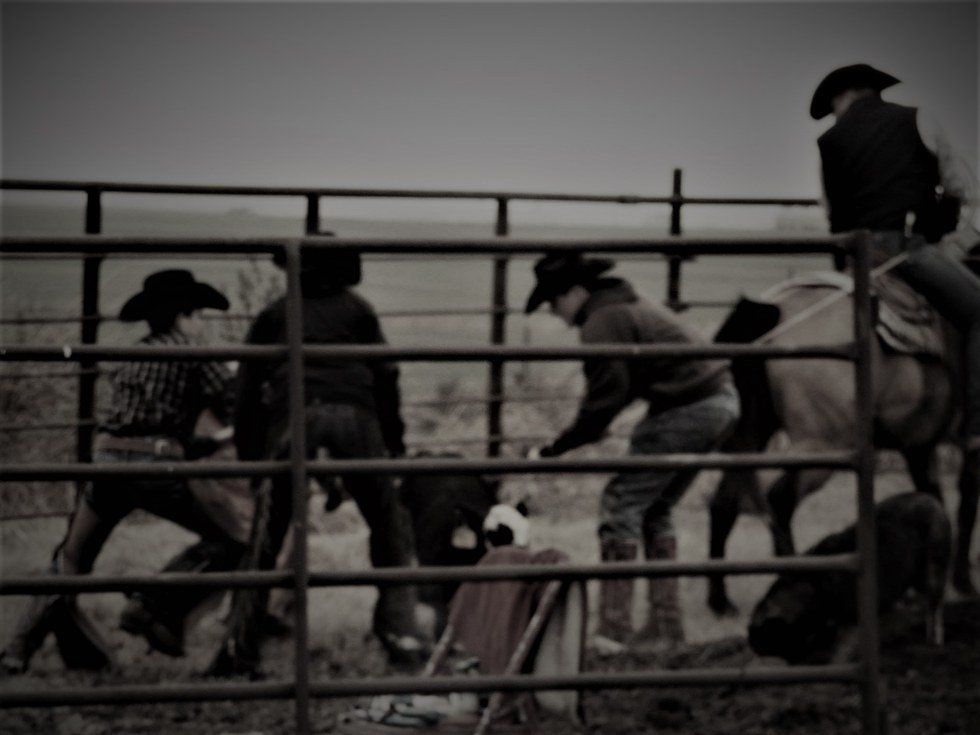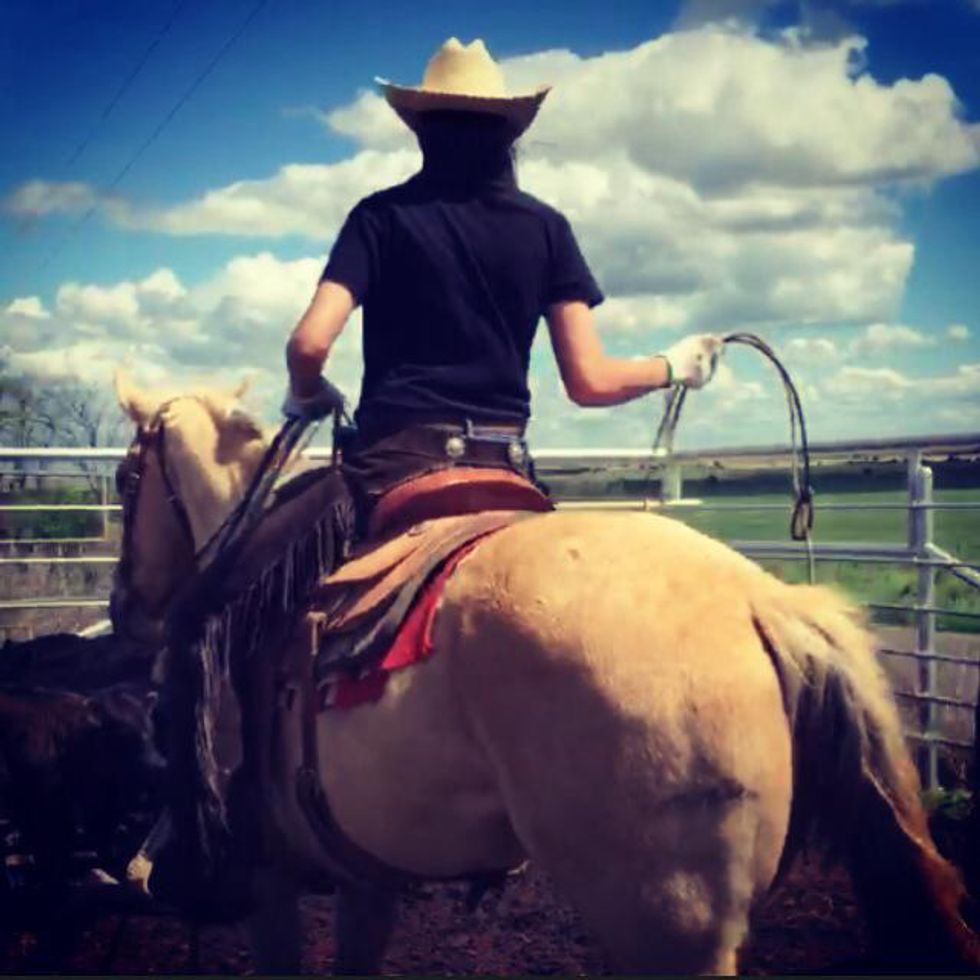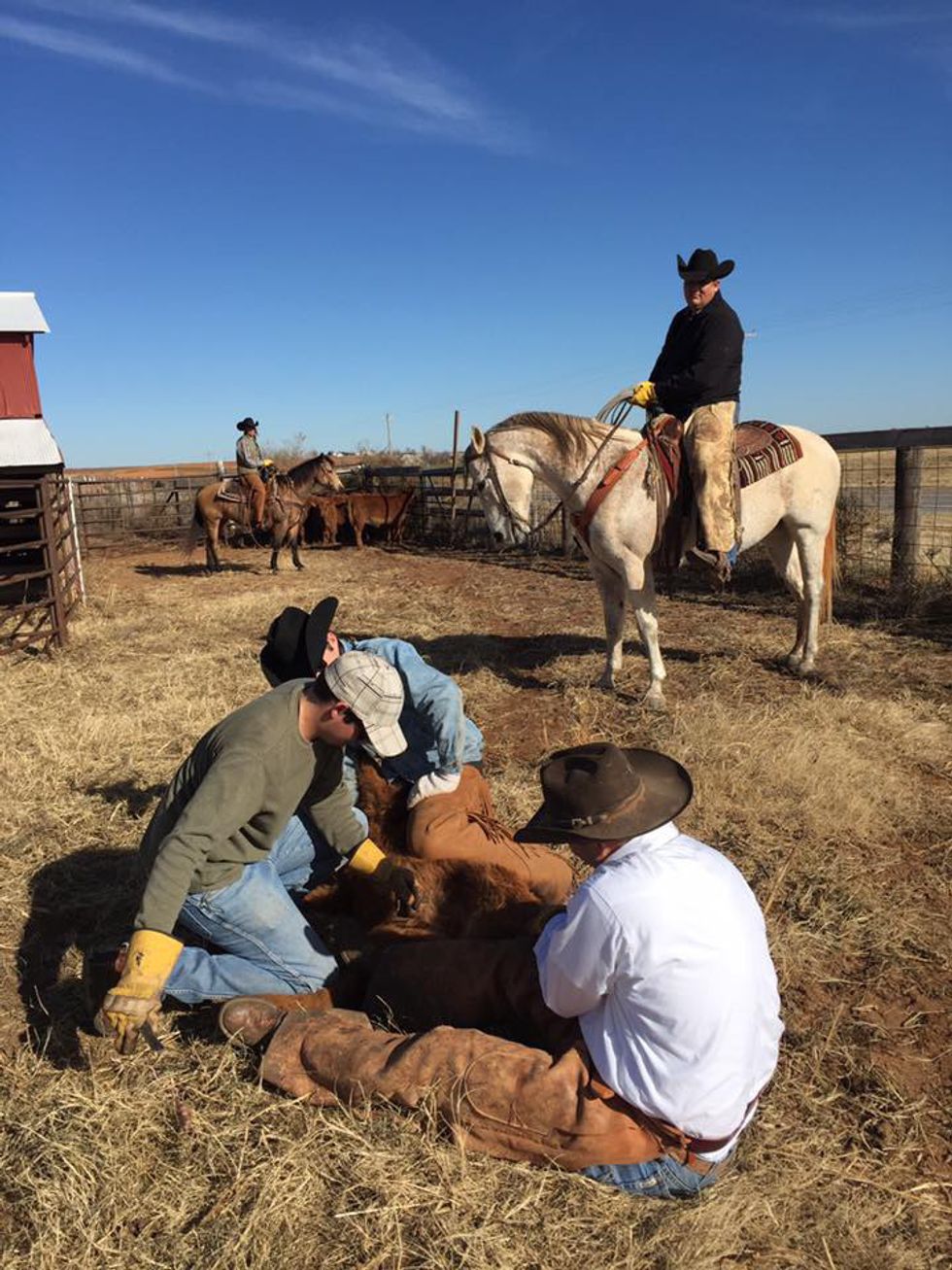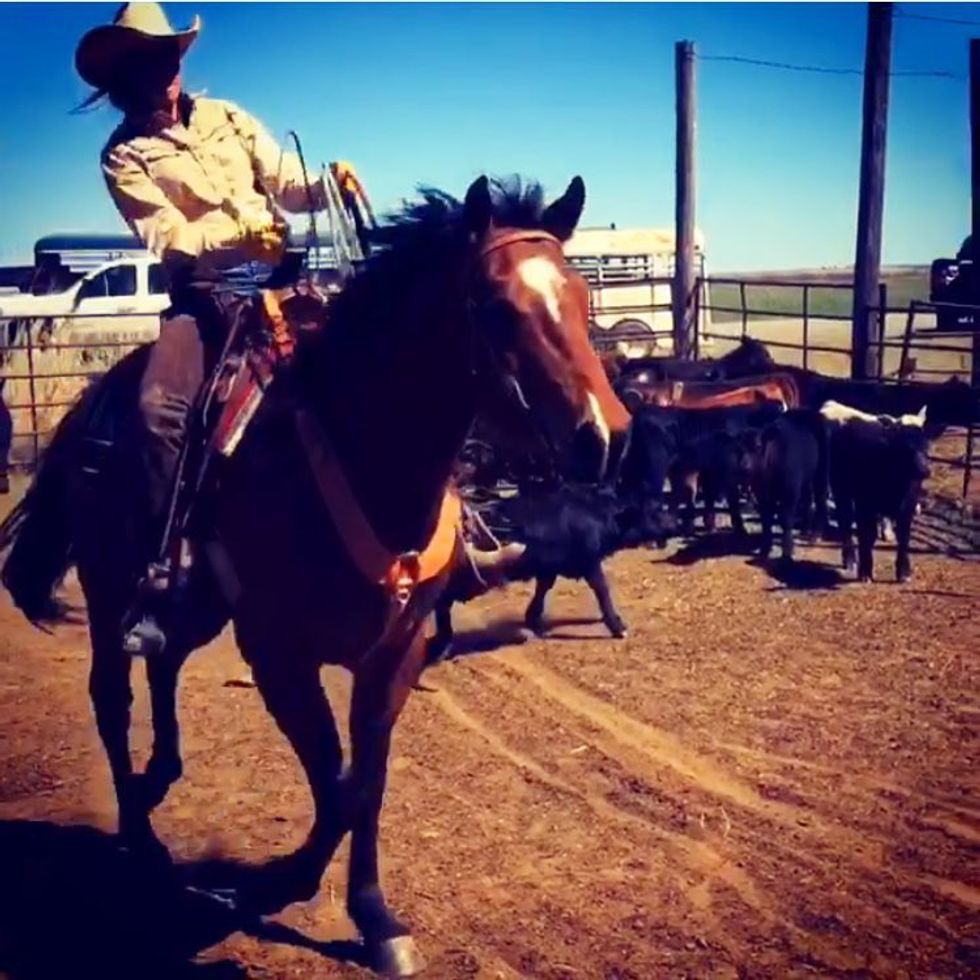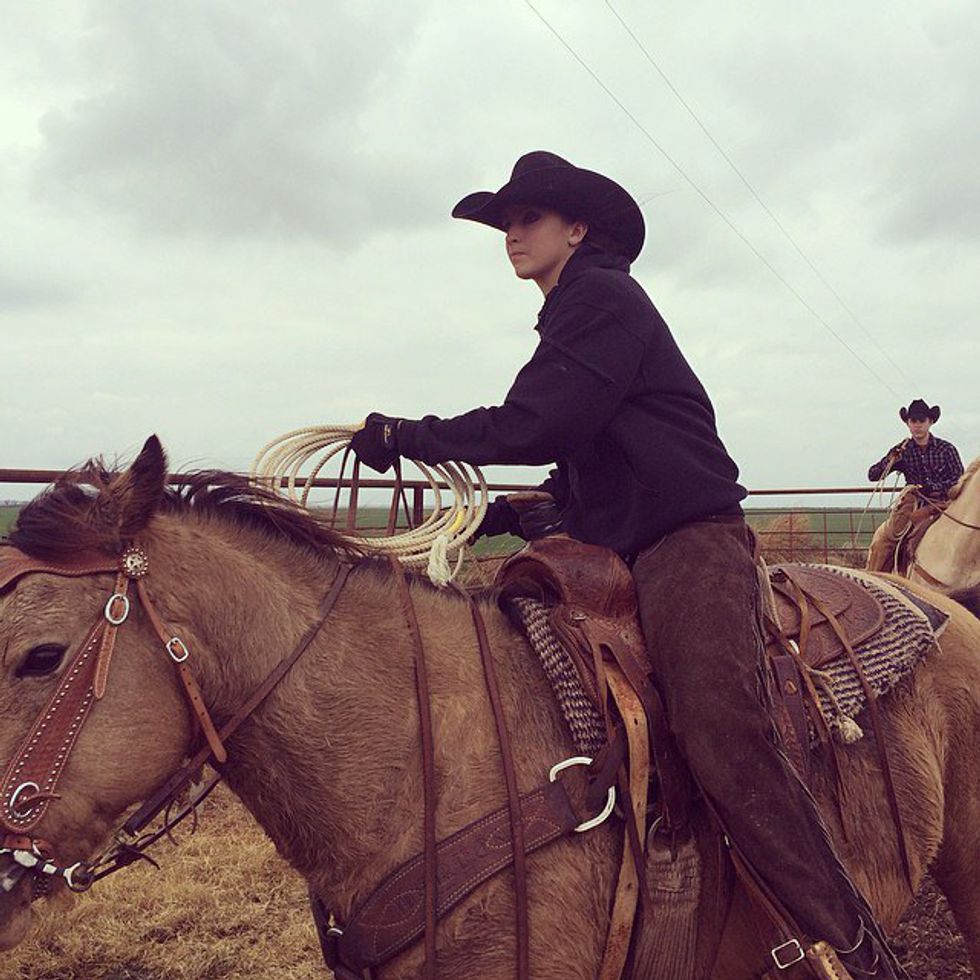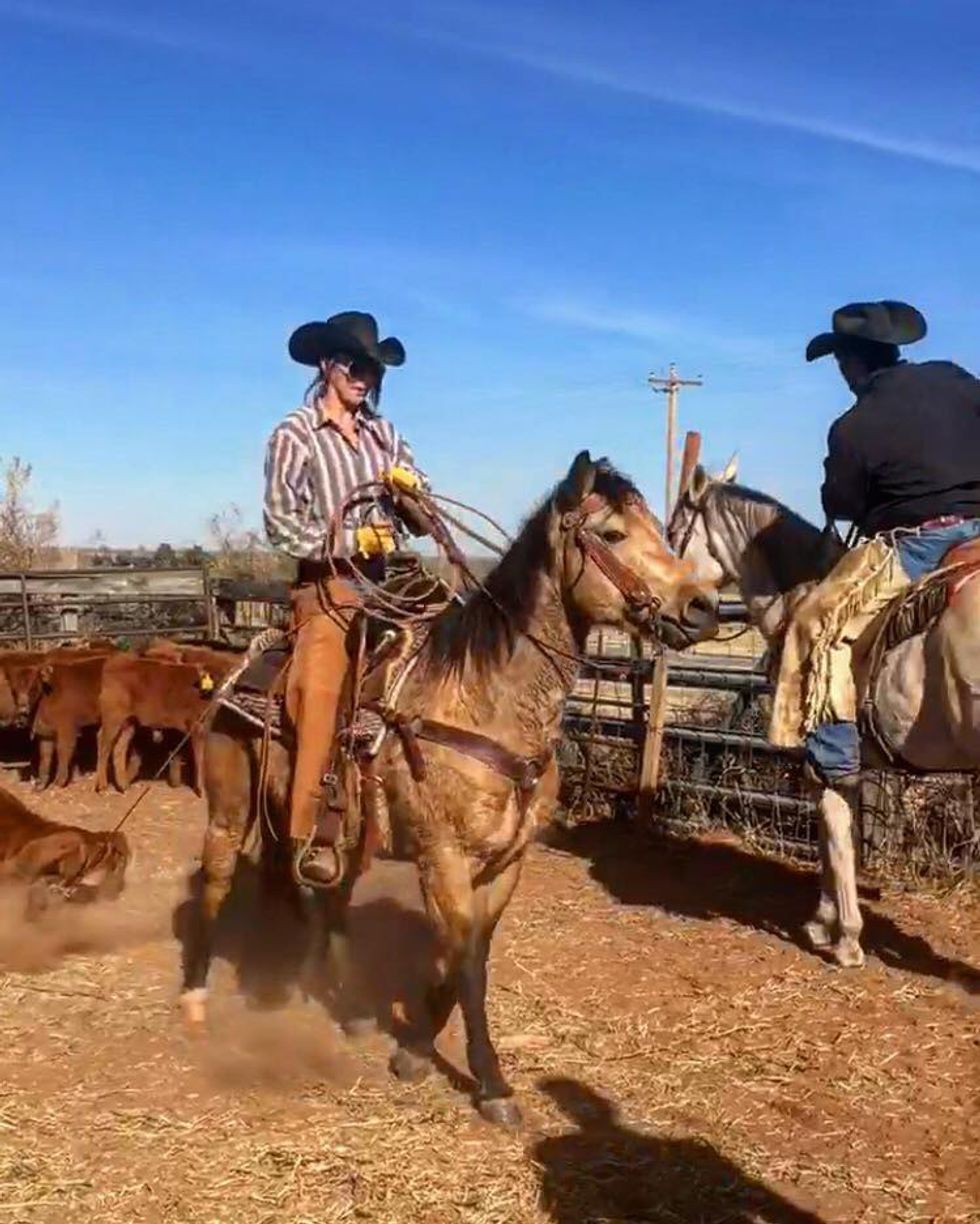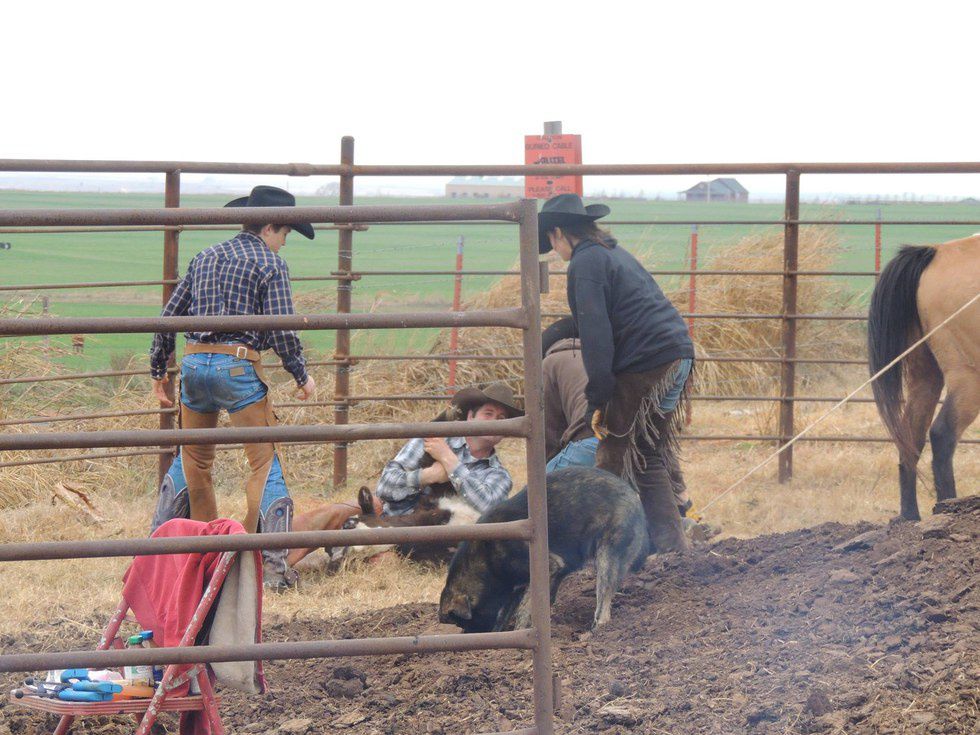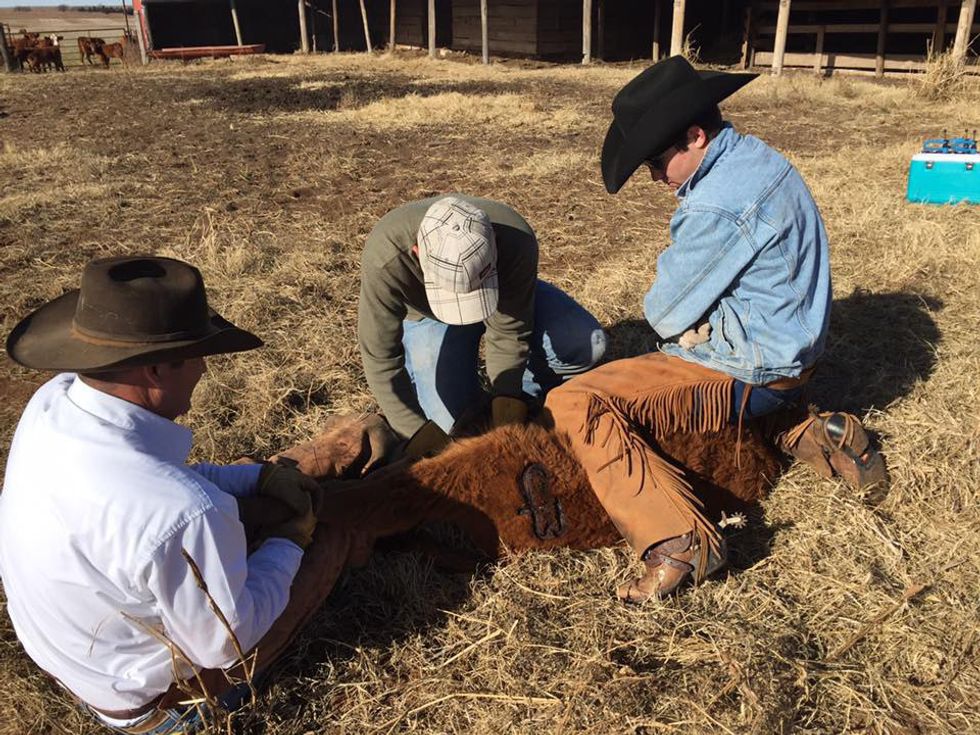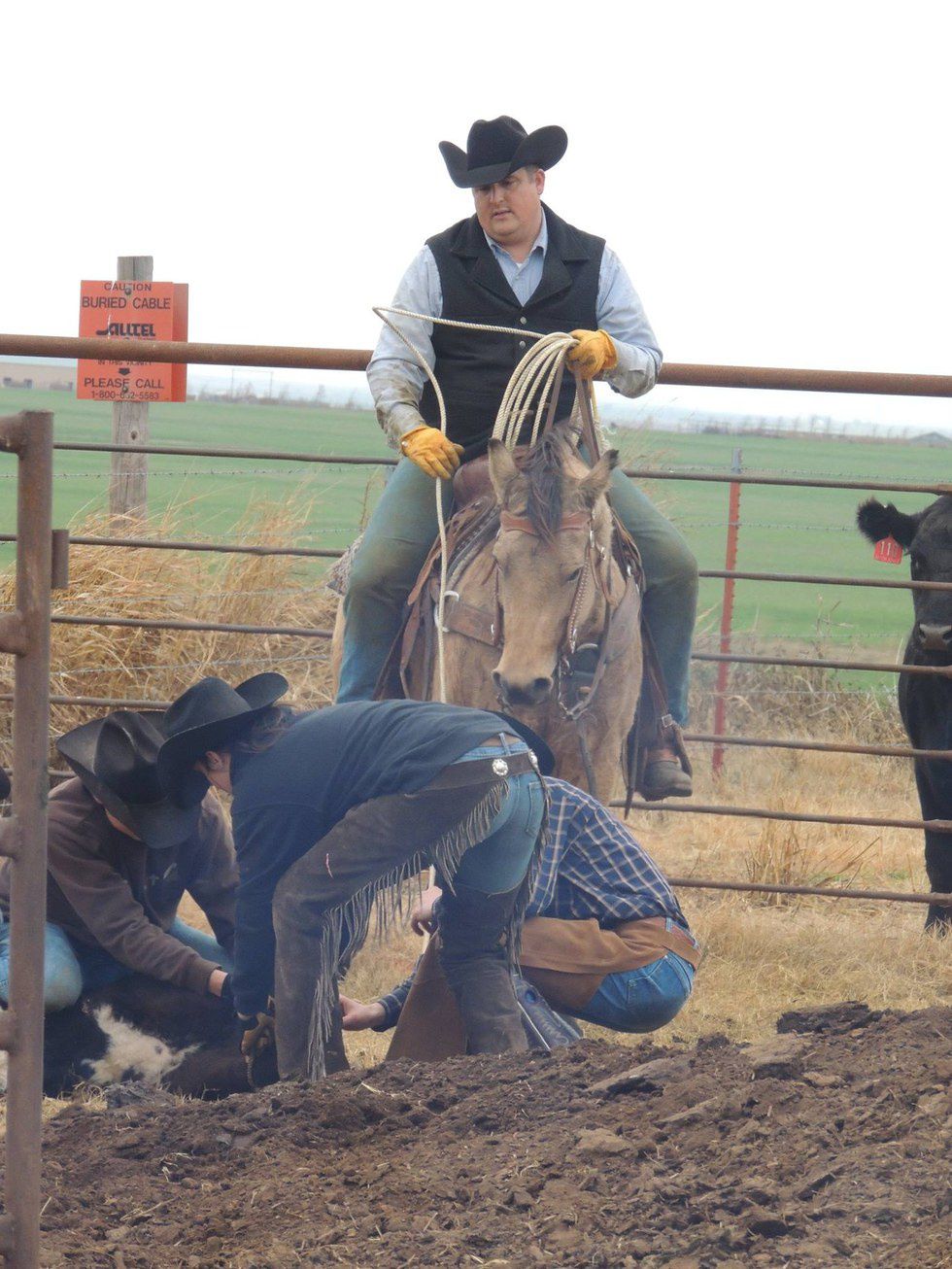Calves bawling, momma cows bellowing in reply, the loud commentary of those working ground crew and the constant blowing wind... All those sounds, yet there is silence. All I can hear are my own thoughts as I prepare to throw a loop. In moments like these, life lessons are learned.
There are two sectors, if you will, in the branding pen: the ground crew and the ropers. The ropers' job is fairly simple; ride in, put a heel loop on a calf, dally, drag the calf to the ground crew, keep the rope tight while the ground crew works, and finally let the calf up on cue. That's if everything goes according to plan and you're a fantastic roper who never misses. The thing is, most of us, don't start out fantastic ropers. Everyone starts out a beginner and there's a first time for everything. Let me paint you a picture of one of the first days I spent dragging calves...
It was a particularly hot day for April and as is typical on the Oklahoma plains, the wind was blowing about 90-miles-an-hour. For the sake of protecting some of my pride, I'm going to blame the dirt in my eyes and extreme wind for the number of times I missed that day. I'm sure the blinding dirt had something to do with my multiple missed dallies as well. Truth be told, I didn't know what I was doing. I could handle a horse and I could work cattle, but dragging calves was all new. Now, I'm the type of person that likes to be the best at everything I do. I also expect to begin with unrivalled skill. I honestly lose all logical thinking and truly believe I am capable of being an expert without any knowledge or experience in the practice. That was the first lesson I learned in the branding pen. Everyone starts out a beginner, even me.
Part of my illogical thinking was that I didn't actually need to be taught... Every time someone on ground crew or one of the other ropers would give me instruction my blood would begin to boil. Now, this wasn't because I was upset with the instructors or instruction. It was a fuming frustration with myself. I was irritated that I wasn't doing as well as I expected myself to do. However, when I forced myself to cool down long enough to apply their critiques, I learned that they were right. I also learned that when I channel my anger into the task at hand I suddenly get a lot better and a lot more productive.
These days I've come a long way from that day roping in the blowing dust. I still occasionally get frustrated with myself when I don't do as well as I intend. I'm still working on that. Thankfully, my roping abilities have improved, although I'm still far from superb. There are so many skills that go into roping and each of them need to be practiced. It takes communication with the horse and handling the cattle wisely. It requires proper positioning of your horse with the calf you intend to rope. The correct technique when throwing the loop must be used for success. Dallying at the precise moment there's just enough slack in the rope to drag the calf out and not too much slack that he steps out of the loop is essential. You have to make sure your loop isn't above the hock or below the fetlock (ankle) to avoid crippling a calf. You must keep your horse calm enough to drag the calf slowly to the ground crew and then keep the rope tight so that they can do their job safely and efficiently. Before releasing the calf, it takes good judgement in waiting for everyone to be ready before you drag the calf away from the ground crew and give him enough slack so that he can kick the rope off and get up. Every part of roping demands and teaches: repetition, concentration, and an incredible amount of patience.
There are rarely days spent roping that do not result in at least one wreck. For example, I've been dallied with a calf on the other end of the rope and had my horse unexpectedly rear up and almost fall over backwards with me. Don't ask me to explain how it happened, but I've had a calf somehow get around my horse in such a way the rope got under my mount’s tail. As you can imagine, that resulted in an unexpected rodeo. I could go on with wrecks I've gotten myself into while roping, but the point is, I've learned from each one of them. I've learned better technique in handling a rope and a horse. More importantly, I've learned that I can handle things when they don't go according to plan. I’ve learned to remain calm and think the problem through, rather than panic. I've learned that your gut is usually right and you should go with those instincts because they're there for a reason.
Although I enjoy roping, I've spent my fair share of time on ground crew as well. The ground crew has multiple responsibilities. There's someone on the rope and someone on the calf's tail to tail the calf over onto its side. These two work together to get the calf on the ground. In unison, the man on the rope yanks the rope with the calf’s hind legs one direction and the man on the calf’s tail pulls in the oppose direction. The end result is the roped calf on its side ready to be worked and branded. The crew member on the tail is the one responsible for keeping the calf on the ground with a knee on the calf’s neck, a knee in the flank, and a foreleg held up and back to keep the calf on the ground and as stable as possible. The man on the rope is then free to help with working and branding. While I've done both these jobs, I usually leave the head for someone with a little more muscle than me. Once the calf is on the ground the head man stays on the calf to keep him from getting up. The rope is most often left on the calf's hind legs, but occasionally for various reasons, someone may remove the rope and hold the hind legs instead. Typically, calves are vaccinated, branded, ear tagged and/or marked, doctored if needed, and bull calves are castrated. This, like roping, requires the proper technique, the right timing, practice and skill. It also requires a little teamwork.
Depending on the number of people working the ground, one or all of these jobs may fall to you. Everything must be done with speed and efficiency. The faster the job gets done, the faster the calf can get up, and therefore be subjected to minimal stress. Working the ground is a team effort. When working with a crew you know your job and make sure it is accomplished. It's important to watch out for everyone in the process and truly work together to avoid getting someone hurt. Most of the time, wrecks on the ground happen because the crew isn't working together or aren't watching out for each other. Observation and courtesy are key on the ground. Working the ground crew has taught me more about teamwork than any sport I ever played. While every bit as fun as any sport, dragging calves can have serious consequences if the proper attention and effort is not given to the task. Any failure to pay attention, do your job, or work with your teammates, can result in injury to you, a crew member, or the calf. This is also a life lesson. Your actions or inaction in life have consequences to you and others. For this reason, you must remain focused in life on the task at hand and function as a team player in order to have the right outcome.
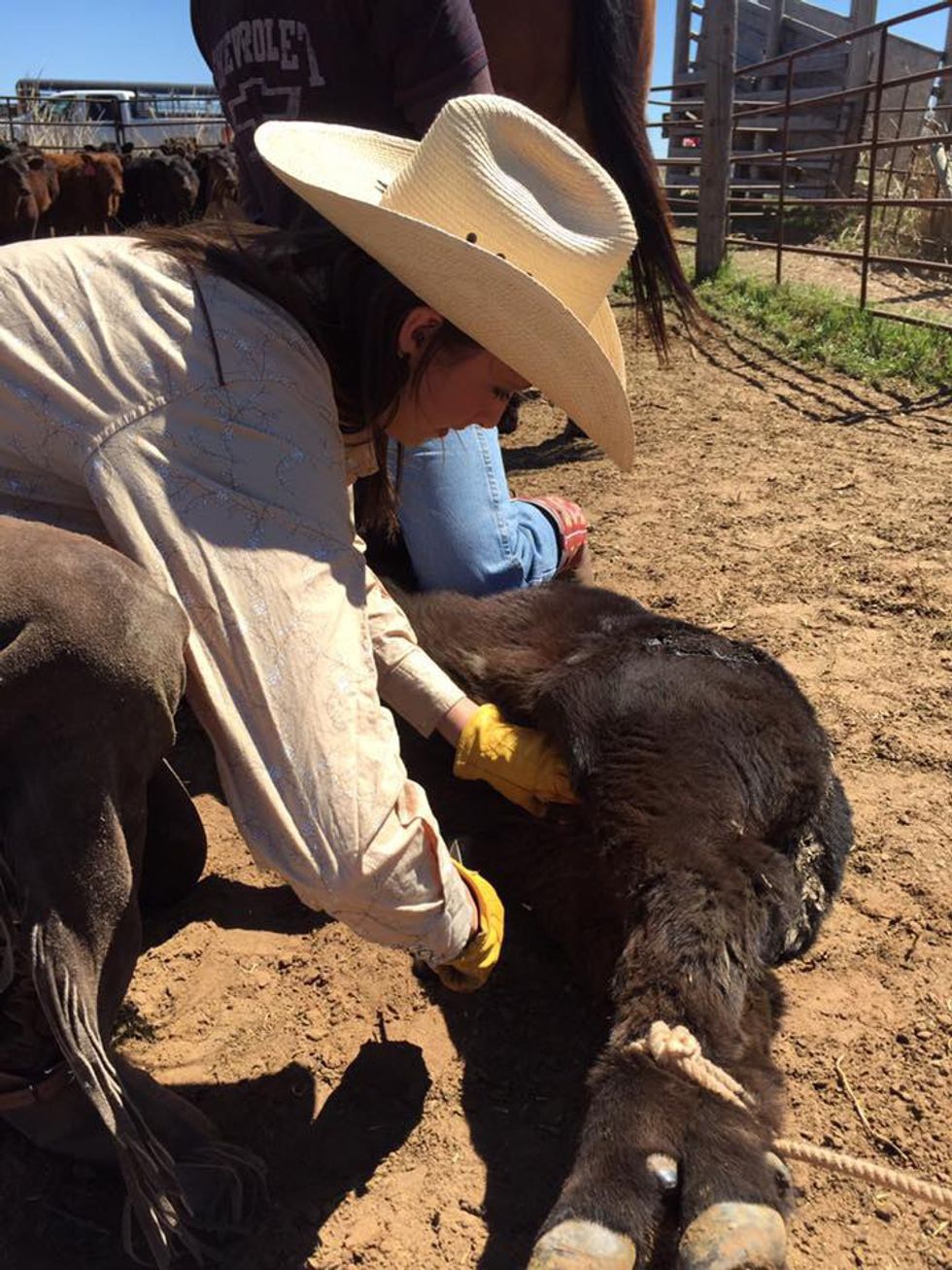
As springtime rolls around, I can't wait to get back to the branding pen and see what I'll learn this year!



